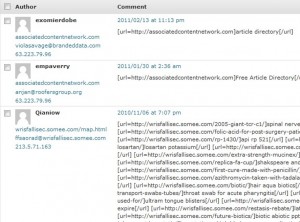 Did news of J.C. Penney successfully gaming Google to deliver its website No. 1 search results disgust you? How about news of the New York eyewear merchant who used cyberbullying to get top Google rankings and more business?
Did news of J.C. Penney successfully gaming Google to deliver its website No. 1 search results disgust you? How about news of the New York eyewear merchant who used cyberbullying to get top Google rankings and more business?
Now you—and the wisdom of the crowd—can take matters into your own hands to stop content farms and websites using shady black-hat search engine optimization (SEO) methods from appearing high in Google search results. Thanks to an experimental Google Chrome browser extension called Personal Blocklist (available in English, French, German, Italian, Portuguese, Russian, Spanish, and Turkish), you can block sites you don’t want showing up in your results. Your blocklist will be sent to Google, which will use it to adjust its search algorithm and potentially rank the offending sites lower.
As a blogger, I really hope Google’s crowdsourcing experiment proves effective in down ranking content farms and black-hat SEO-optimized websites. As of today, eVentures in Cyberland: Through the Web 2.0 Looking Glass, and What Communicators Found There! has received 2,302 spammy comments (almost all stopped by anti-spammy comments software). Many of them link to other sites having nothing to do with communications.
According to the New York Times, this type of spam, a shady black-hat SEO practice, is what helped J.C. Penney deliver its website No. 1 search results from everything from “dresses” to “bedding”:
“Someone paid to have thousands of links placed on hundreds of sites scattered around the Web, all of which lead directly to JCPenney.com. … Some of the 2,015 pages are on sites related, at least nominally, to clothing. But most are not. The phrase “black dresses” and a Penney link were tacked to the bottom of a site called nuclear.engineeringaddict.com. “Evening dresses” appeared on a site called casino-focus.com. “Cocktail dresses” showed up on bulgariapropertyportal.com. ”Casual dresses” was on a site called elistofbanks.com. “Semi-formal dresses” was pasted, rather incongruously, on usclettermen.org.”
Since some of the 2,302 spammy comments left on my site lead to content farms and mirror sites (as shown in the screen shot, which you can click on to enlarge), I suspect many of them also engage in black-hat SEO too. Content farms produce tons of shallow or low-quality articles to maximize search engine traffic, while mirror sites copy and paste whole articles from reputable sites into ad-happy pages.
Their extreme savvy at gaming Google’s search results will make watching Google’s crowdsourcing experiment interesting. After all, what’s to stop content farms and black-hat SEO firms from employing hordes of web searchers to install the test extension and go out into the web blocklisting the competition? Only time will tell.
For now, if you’re a tech-savvy Chrome user, please download and start using the Personal Blocklist extension today.
What is your experience with comment spam? Do you think Google’s crowdsourcing experiment will work? Please share your thoughts in the comments section.
Stefan
Google Tests Crowdsourcing Search Result Quality